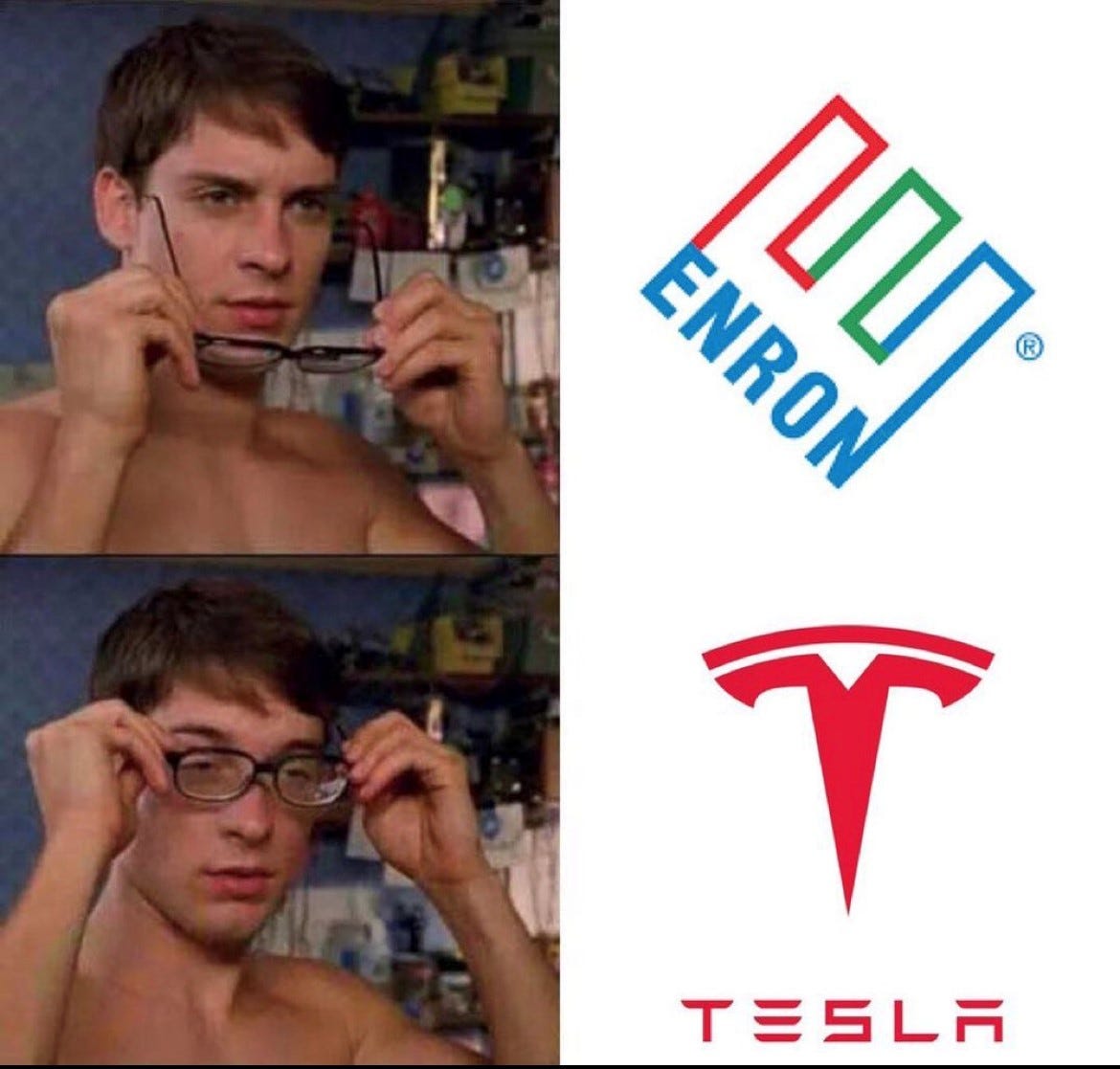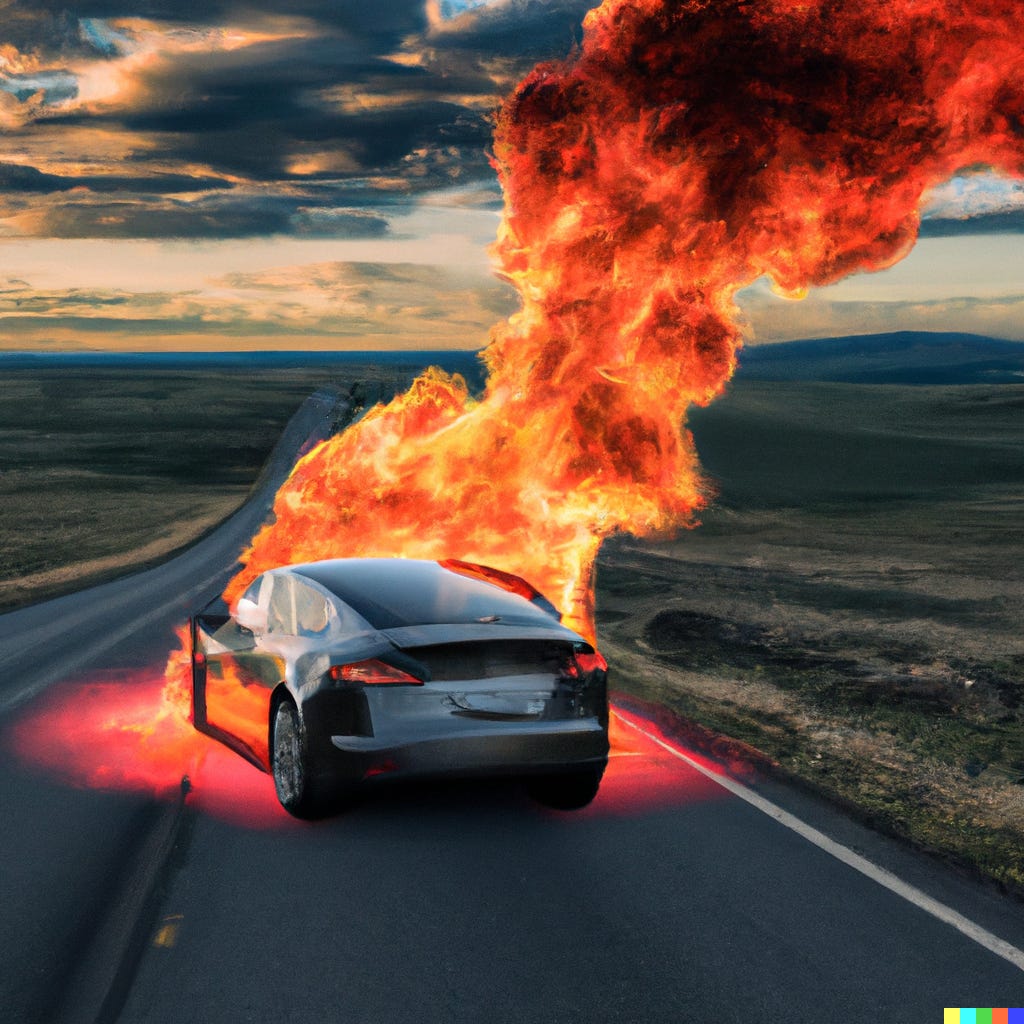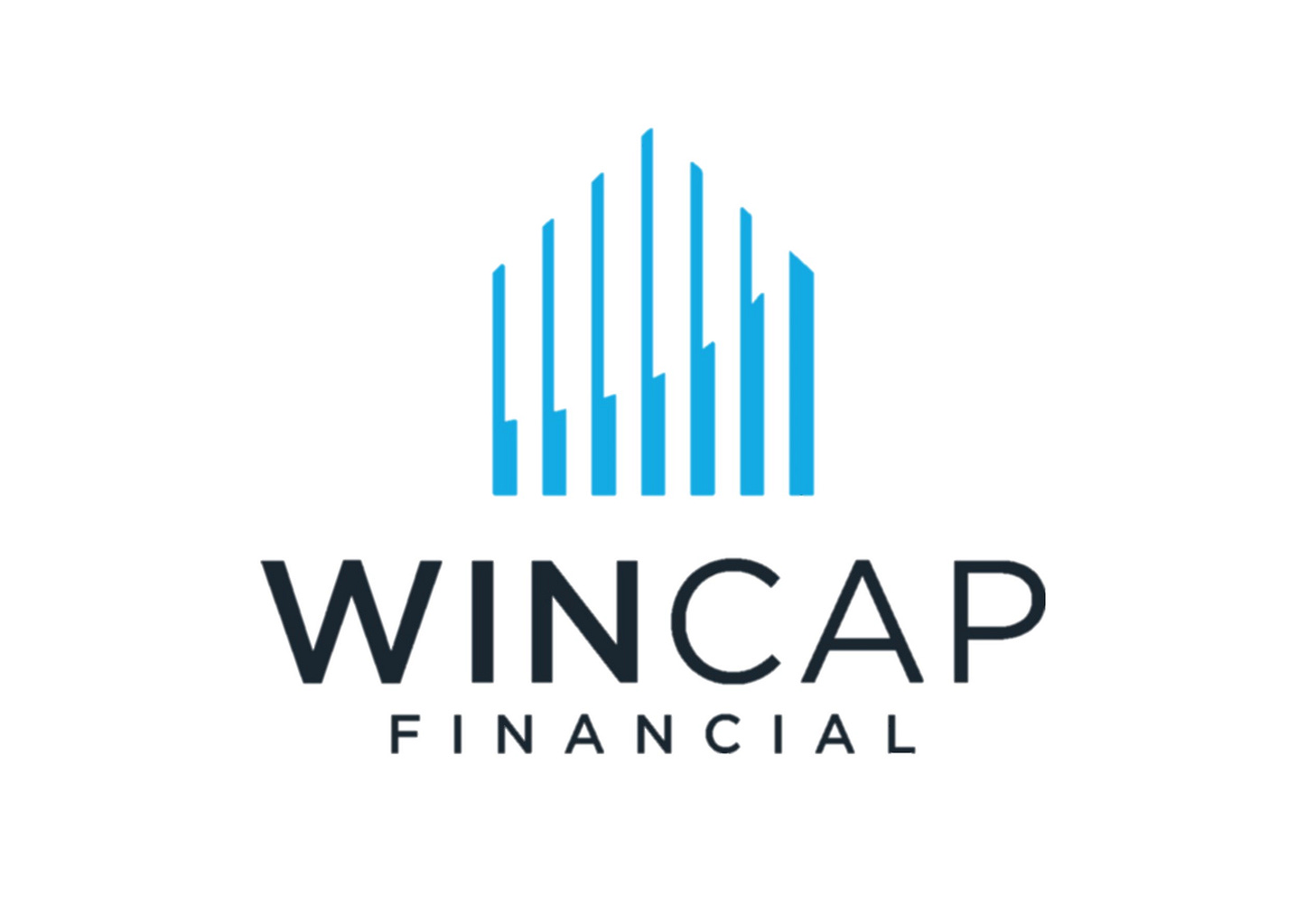Enron’s Hypnotic Appeal
The love people had for Enron was intense, and nobody could have predicted the company's fall from grace. Employees and investors were drawn to its success. The company was once the seventh largest in the United States and was known for its innovative energy trading. People loved Enron because it seemed to represent the American dream & job seekers viewed the company as a great place to work.
Enron was also known for its innovative business practices and its commitment to employee development. Employees at Enron were given the opportunity to grow their careers and earn good salaries. Employees loved working there because it was a fast-paced, exciting environment. Investors loved Enron because it was a high-flying stock with endless potential.
The Enron Scam
The Enron scandal, publicized in October 2001, eventually led to the bankruptcy of the Enron Corporation, an American energy company based in Houston, Texas, and the de facto dissolution of Arthur Andersen, which was one of the five largest audit and accounting firms in the world.
In addition to being the largest bankruptcy reorganization in American history at that time, Enron was cited as the largest audit failure. Enron was formed in 1985 by merger of two natural gas pipeline companies, Houston Natural Gas and InterNorth. Before its bankruptcy, Enron employed approximately 29,000 staff and was one of the world's leading electricity, natural gas, communications, and pulp and paper companies, with claimed revenues of nearly $111 billion in 2000.
Fortune named Enron "America's Most Innovative Company" for six consecutive years. The scandal was revealed in October 2001, when the company's stock price rapidly declined due to revelations that its reported financial condition was massively overstated. This was caused by institutionalized, systematic, and creatively planned accounting fraud. Enron has since become a well-known example of willful corporate fraud and corruption.
The scandal also brought into question the accounting practices and activities of many corporations in the United States and was a factor in the enactment of the Sarbanes-Oxley Act of 2002. The scandal also led to the demise of Arthur Andersen, which at the time was one of the Big Five accounting firms.
Tesla vs Enron
Some of Enron's biggest innovations in technology included their video streaming capabilities, which allowed them to stream live events and conferences for their employees and shareholders. However, their innovative accounting practices, which allowed them to hide their true financial condition, eventually led to their downfall. Some say Tesla may not be down this path quite yet, but the tech giant is certainly heading towards its direction.
Tesla has promised and charged customers in advance for features that have yet to materialize through advanced purchasing of software updates. Tesla's inability to deliver on self-driving while also charging buyers in advance for the feature could be a large problem with the SEC. This could be seen as a form of securities fraud, as Tesla is essentially selling a product that does not yet exist. If the SEC were to investigate, Tesla could be forced to refund customers, which could have a significant financial impact on the company potentially leading to default. While hard to imagine, Enron was once the 17th largest company in the US and a darling of investors and young job seekers.
The collapse of Enron was largely due to the company's aggressive and poorly thought-out expansion into new businesses, like Blockbuster video. Tesla's selling products before they are ready is similarly problematic, as it puts the company in a position where it is relying on revenue from sales to fund the development of its products. This can create a dangerous feedback loop, where Tesla is under pressure to sell more and more products to generate revenue to fund development, even as the products themselves are not yet ready for market. This can lead to subpar products being released, which in turn can lead to customer dissatisfaction and further financial woes for the company.
Conference Call Outbursts
Both Jeff Skilling and Elon Musk are known for their brashness and risk taking. In May of 2018, Tesla founder and CEO Elon Musk called an analyst a "butthead" on a Tesla conference call after the analyst questioned Tesla's production levels. A reasonable inquiry. This event caused Tesla's stock price to drop by 3 percent.
In 2001, then-Enron CEO Jeff Skilling called an analyst an "asshole" on an Enron conference call after the analyst questioned Enron's accounting practices. This event caused Enron's stock price to drop by 15 percent.
Failed Promises
Both Tesla and Enron are innovative companies that have failed to deliver on their promises. Tesla has yet to mass produce it’s Cybertruck, which seems perpetually delayed. Enron booked revenue before the completion of important energy projects.
Both companies have been accused of fraud, and both CEO’s have been investigated by the SEC. Tesla's self-driving commercial trucks have been a much-anticipated product, but so far the company has not delivered on its promises. The trucks were originally supposed to be in production by the end of 2017, but that deadline was pushed back to the end of 2019. And as of yet, there are no self-driving Tesla trucks on the road.
There are a number of possible reasons for this delay. It could be that Tesla is having difficulty perfecting the technology. This is a complex undertaking, and it's possible that Tesla underestimated the challenges involved. It's also possible that Tesla is having trouble finding customers for its trucks. With so many other companies working on self-driving technology, it's possible that Tesla is having trouble competing. Whatever the reason, Tesla's self-driving trucks have yet to materialize. This is a disappointment for the company and for its investors.
On August 10th, 2022, safety advocate, Ralph Nader petitioned for the National Highway Traffic Safety Administration, or NHTSA, to force Tesla to recall its FSD (Full Self Driving) software. Nader claims that their FSD logs an error every 8 minutes. Musk has promised self driving for over a decade yet the software is still in beta status. NHTSA recently upgraded its investigation to an “Engineering Analysis,” which is the final step before a recall.
Future Troubles?
The head of Tesla's self-driving unit, Sterling Anderson, recently quit the company. This has caused some to question Tesla's ability to deliver on its promise of self-driving cars. A canary in the coal mine? The lack of full features could make a reasonable person ask whether Tesla is engaging in false advertising. However, the tech giant has been able to perform very well in recent years, and only time will tell what will happen next.
Want to see more like this?
Subscribe to WinCap Financial on LinkedIn
Schedule a Meeting with Michael Collins, CFA








